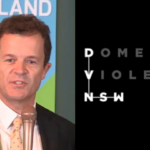Domestic Violence Disclosure Scheme: The Right to Know or an Unjustified Intrusion on Privacy?

New South Wales residents may soon be able to call a hotline or access an online portal to check whether the person they claim to be their partner has a history of domestic violence.
The proposal builds on a pilot scheme which was first trialled in a number of areas of the state, including Tamworth, Nowra, St George and Sutherland from 2016.
That trial required applicants to attend a police station to apply, and was met with mixed results.
Only 50 applications were made under the scheme over a two-year, period and the criticisms included:
- Applicants found the requirement of attending a police station prohibitive and difficult, and
- Those targeted raised issues about misuse, and expressed the view they should be able to put their pasts behind them and move forward with their lives, rather than have their privacy breached and face further stigmatisation.
There are concerns the potential for misuse will be compounded by the ease with which applications will be able to be made under the proposed scheme.
The right to know
The revised scheme would allow anyone to make an application to access information regarding whether a person who they assert is a partner has a history of domestic violence. The target would have no say in the matter – the applicant would, however, need to assert that he or she believes the information is necessary to prevent a threat to life or health.
The proposed changes to the law would create an exception to privacy protections, thereby circumventing them.
The best use of domestic violence funds?
The New South Wales government is yet to finalise all of the details regarding the proposed scheme, and some have expressed the view that it may not be the best use of limited funds for domestic violence support services.
Public sentiment has been equivocal, and is perhaps consistent with the response of former President of the Law Society of New South Wales Doug Humphreys, who has stated “Domestic violence is a complex issue that is not amenable to simple solutions.”
Few would argue that it is one way people can aim to stay safe when they meet a new partner, but there is still not a significant amount of evidence to suggest that such schemes are effective and there are questions around whether the money that will be spent on the service, could be better directed elsewhere.
In 2017, the Queensland Law Reform Commission advised the state government not to implement a disclosure scheme, determining funds would be better spent on frontline services.
Frontline services are desperately under-funded and they are vital – and in many cases lifesaving – for those experiencing domestic violence.
More emergency accommodation, and facilitated access to legal and psychological support also top the list of necessities. As does the need for more focused training for first responders, particularly police, to address specific failings highlighted in two reports last year – one by the NSW Auditor-General which determined that NSW Police hasn’t dedicated the same level of resources to deal with domestic and family violence that exists in other states.
And a second report, by Domestic Violence NSW – the state’s peak body for specialist services – which found that a majority of victims felt re-traumatised or humiliated after their interactions with police, rather than supported.
Top of the election agenda
Further to the announcement that the disclosure scheme will be expanded, the Government has also pledged to review domestic-violence related sentences. The review will be conducted by the Sentencing Council. The recent parliamentary select committee inquiry into coercive control heard a great deal of concern about the adequacy of sentencing on breaches of Apprehended Violence Orders.
The NSW Government has also committed to undertaking a feasibility study to establish a dedicated Domestic and Family Violence Court, in the wake of recently released statistics which show that the average time for contesting a domestic violence case had blown out from 160 days pre-Covid to 270 days at the end of the past financial year.
According to the figures, about 37 percent of pending local court criminal hearings are domestic-violence related.
Dealing with the ‘shadow pandemic’
The pandemic, of course, caused major delays in all of the courts. But it also caused a rise in instances of domestic violence, as it did in most countries across the globe – a result of lockdowns, financial pressures, job losses, isolation from social connections and family and friends.
The NSW Government has also pledged to class victims of domestic violence as first home buyers, even if they already own property with an ex-partner, allowing them to access the Coalition’s new land-tax scheme.
Labor has promised to match the latter if it is elected into power. Ithas also committed to establishing a specialist multicultural domestic and family violence centre in south-west Sydney if it is elected to specifically provide services for migrants and refugees.
It’s clear that domestic violence is front and centre of the lead up to the election in March, and this is good news.
But many experts have, over a long period of time, agreed that New South Wales is not necessarily lacking in specialist Domestic Violence services, but is lacking funding for existing services, which are struggling to keep up with demand. Insecure funding also makes long-term planning impossible.
There have also long been calls for a much more coordinated approach – not just through the provision of domestic violence support services, but from the very first contact with police or other emergency workers, whether they are paramedics or hospital staff, through to accessing and navigating the justice system.
We also need, as a community, to stop assuming that all victims of domestic violence are ‘women’ and constantly referring to victims as ‘women and children’.
Yes, women and children are the overwhelming majority of victims – that fact is not in dispute.
But in about one-third of cases, men are victims of domestic and family violence. They also desperately need access to services but are often overlooked because the numbers of male victims tend to be vastly under-reported.







